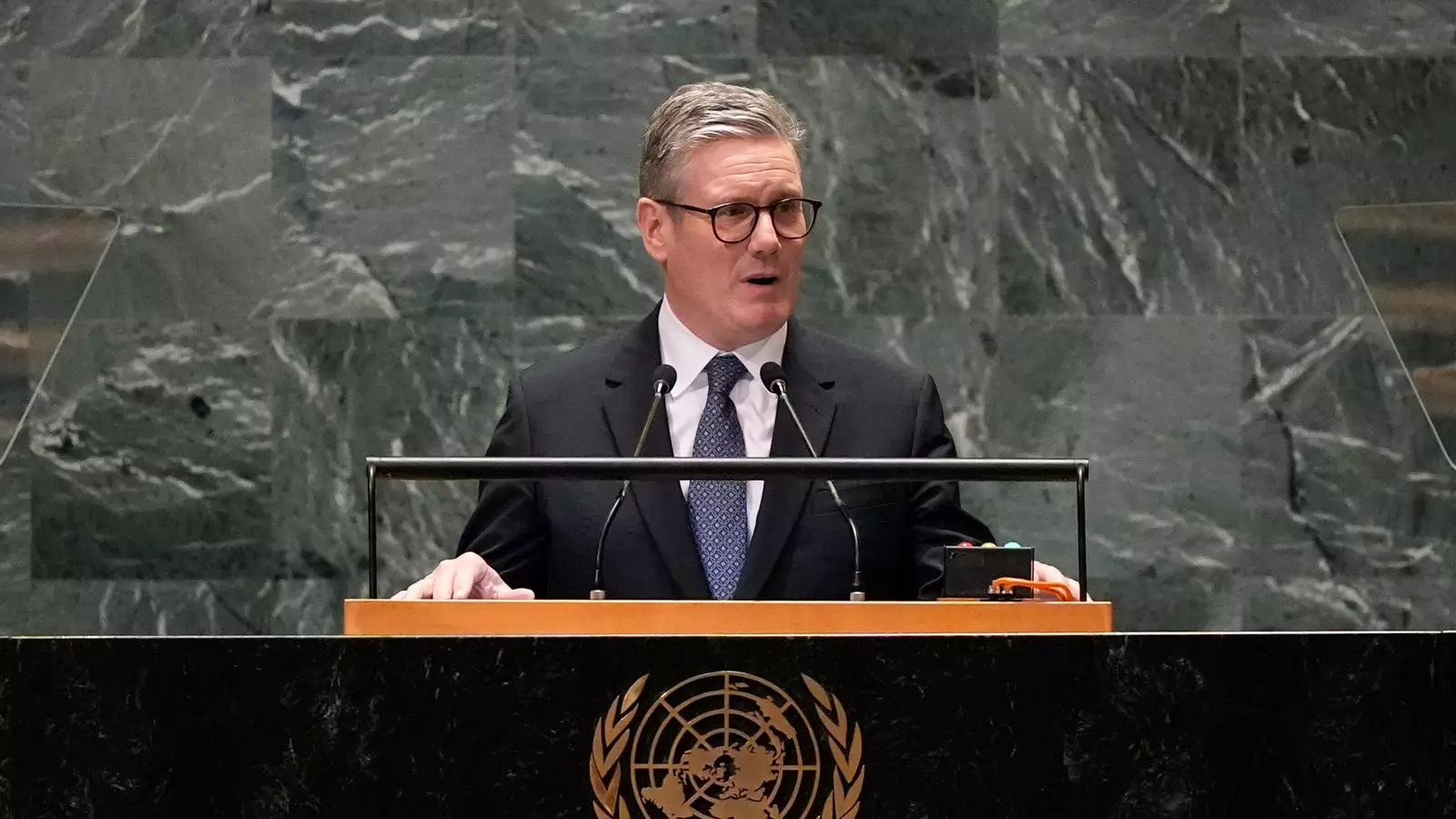In recent days, the global spotlight has once again zoomed in on the fraught relationship between Israel and Hezbollah, two entities whose ongoing conflict has jeopardized stability in the Middle East for decades. Sir Keir Starmer, the Prime Minister of the United Kingdom, took the platform during the United Nations General Assembly to advocate for a ceasefire between these two forces, emphasizing that “escalation serves no one.” His plea serves as a reminder of the chaotic situation that threatens to spiral into even greater violence if diplomatic solutions are not pursued.
Starmer’s urgent appeal was delivered against a backdrop where Israeli Prime Minister Benjamin Netanyahu had affirmed his commitment to continued military action, dismissing rumors of a ceasefire as “not true.” This juxtaposition of hopeful diplomacy against a backdrop of stubborn militarism encapsulates the current impetus for peace negotiations. The prime minister’s call — “Stop the violence, step back from the brink” — is a critical reminder that the cost of inaction can be dire for countless civilians caught in the crossfire.
The essence of Starmer’s speech lies in the understanding that the continuation of military engagement will not only exacerbate existing tensions but also significantly hinder the opportunity for a diplomatic resolution. He articulated the need for immediate cessation of hostilities to allow for the necessary space where constructive dialogue can take root. “We are working with all partners to that end,” Starmer mentioned, emphasizing the UK’s role in facilitating conversations toward sustainable solutions.
This stance also places pressure on the international community to rally together to promote peace, enhance cooperation, and foster dialogue. Particularly in the context of the United Nations, where Starmer suggested a unified effort is paramount, it is vital that member nations not only condemn violence but actively contribute to conflict resolution mechanisms that can avert further escalation in the region.
Broader Implications: The Ukraine Conflict
Starmer’s agenda at the UN also touched upon broader global issues, most notably the ongoing conflict in Ukraine ignited by Russia’s invasion. His criticism of Russia was pointed, as he described its actions as “the greatest violation of the charter in a generation.” This remark reflects a growing international consensus regarding the need for accountability among nations — especially those possessing significant military capabilities.
By connecting the urgency of resolving the Israel-Hezbollah conflict with a broader critique of aggression by member states such as Russia, Starmer underscores the interconnected nature of global conflicts. Each situation presents lessons learned and frameworks for potential resolution, though the political landscapes often complicate these processes. His proposed focus on creative solutions for conflict resolution signals a commitment not just to respond to crises but to anticipate and prevent future conflicts.
Investing in a Sustainable Future
In addition to his advocacy for international peace, Starmer also seized the platform to discuss domestic initiatives aimed at tackling climate change — a crucial factor increasingly tied to geopolitical stability. He announced plans to channel “billions” from pension and insurance funds toward combating climate change and fostering development. This strategic pivot illustrates the UK’s commitment to boosting growth through private investments, as well as addressing pressing environmental challenges that can exacerbate socio-political unrest.
The creation of a new facility under British International Investment aims to streamline efforts to manage these funds, integrating financial strategies with climate commitments. Starmer’s insistence on “innovating,” “thinking differently,” and “moving faster” reveals a leader who recognizes the dual necessity of economic and ecological resilience.
On the eve of his UN address, Sir Keir Starmer was also set to engage with international leaders, including a scheduled meeting with Donald Trump. The ability to connect with both sides of the US political spectrum is vital for fostering transatlantic relationships, particularly in light of the current global challenges. The absence of a meeting with Democrat Kamala Harris reflects the complexities inherent in aligning diverse political ideologies to forge a unified front on issues of global concern.
Sir Keir Starmer’s UN address encapsulates the urgent need for renewed commitment to peace in the Middle East and beyond. As the complexities of violence and diplomacy intertwine, his calls for a ceasefire bring hope and highlight the necessity for proactive, collaborative approaches in resolving conflicts and investing in future sustainability. The interconnected nature of contemporary conflicts demands that political leaders rise to the occasion, fostering a culture of dialogue, accountability, and innovation to navigate the challenges ahead.



Leave a Reply